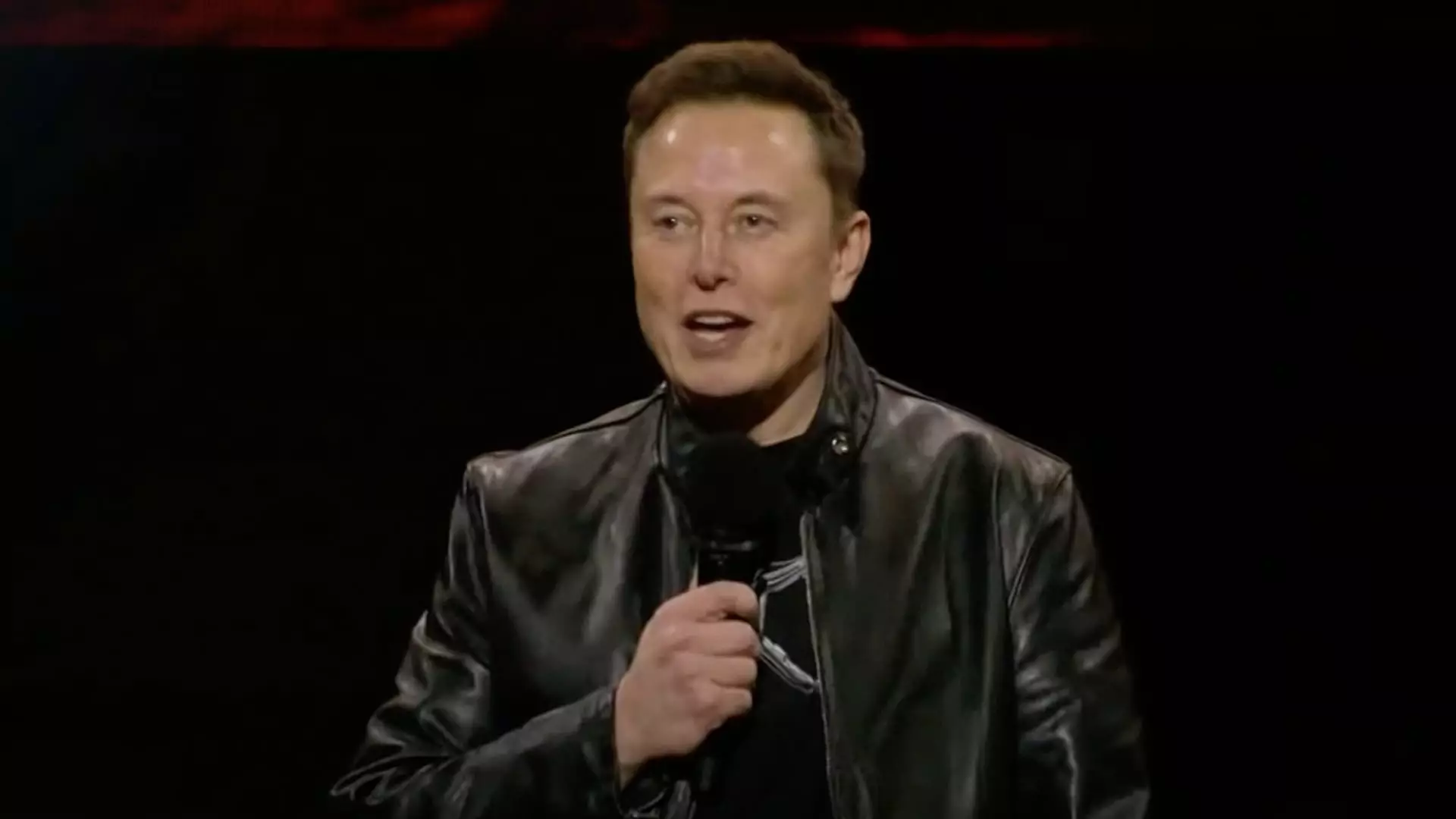In a striking blend of technological innovation and intellectual property contention, Elon Musk, along with his company Tesla, faces a lawsuit filed by Alcon Entertainment over alleged copyright infringement. This legal battle centers on the company’s alleged use of images from the iconic film “Blade Runner 2049” to market Tesla’s ambitious robotaxi project. The implications of this case extend beyond legal frameworks into the realms of ethics, branding, and the future of artificial intelligence.
The lawsuit originated as a response to an event where Tesla unveiled its robotaxi concept, dubbed the Cybercab. Intended as a futuristic and affordable transportation solution, the Cybercab aims to be available for under $30,000 by 2027. Although the idea behind such disruptive technology may be appealing, this case raises critical questions about the ownership and use of creative assets in the age of artificial intelligence. Alcon Entertainment claims that Musk sought permission to use a notable image from “Blade Runner 2049,” but this request was categorically denied. Despite this explicit refusal, the suit alleges that an AI-generated version of the image was utilized during the Tesla presentation.
This alleged breach of copyright raises essential issues regarding the responsibilities businesses have when leveraging AI technologies. While machine-generated content can operate in a grey area of copyright law, especially with hastily evolved technology, companies like Tesla must tread carefully to avoid infringing on existing intellectual property rights.
The Role of AI in Creative Industries
Artificial intelligence has emerged as a revolutionary force across numerous sectors, including the creative industries. There is a growing fascination with AI’s ability to produce content that can mimic human creativity. However, as the lawsuit highlights, this capability can lead to significant ethical and legal dilemmas, chiefly when it encroaches on copyrighted material.
Alcon’s legal complaint underscores the rapidly blurring boundaries between original creation and derivative works. By using an AI-generated image of “Blade Runner 2049” without permission, the defendants allegedly positioned themselves in a precarious legal situation. The ramifications of such actions could set a concerning precedent for how future AI applications are deployed in marketing, product development, and brand partnerships.
Brand Reputation and Political Implications
The lawsuit also raises questions about the intersection of brand reputation and political affiliations, particularly regarding Musk’s often incendiary public persona. In its claims, Alcon expresses concern about the potential risks associated with associating their brand with Musk’s public image. The company notes that any partnership with Tesla might inadvertently link their cinematic endeavor with Musk’s political and social viewpoints, some of which have been inflammatory and divisive.
In a media landscape that increasingly scrutinizes corporate partnerships and endorsements, Alcon’s discomfort reflects broader anxieties about reputational risk. As businesses strive to maintain relevant and positive brand identities, they are more carefully evaluating potential affiliations, particularly in light of the often polarizing actions of public figures like Musk.
The suit suggests that Alcon’s ongoing efforts to forge partnerships with automotive brands for its upcoming “Blade Runner 2099” television series could be jeopardized due to Musk’s controversial image. This could hinder potential collaborations and impede the reach of artistic properties into markets that were previously viewed as fertile ground for cross-promotional partnerships.
Alcon’s allegations highlight the critical notion that brand associations matter; they can either amplify or dilute a brand’s market presence. For many firms, collaboration with Musk may be seen as a liability rather than an asset in today’s charged socio-political climate.
Future Perspectives
As the case progresses, it will be essential for industries to reevaluate how they approach partnerships, especially when involving innovative technology such as AI. The outcomes of this lawsuit may influence not just the relationship between artists and tech corporations, but it could also prompt legal reforms to address the rapidly evolving dynamics between creative rights and technological advancements.
Ultimately, the tension between innovative ideals and the responsibilities that come with them, particularly in cases like Musk and Tesla’s alleged copyright infringement, spotlight the need for clear frameworks that govern AI use in commercial spaces. In an age where the lines between creator and machine-generated content can easily blur, it becomes ever more crucial for businesses to navigate these complexities with greater prudence and ethical awareness.


Leave a Reply